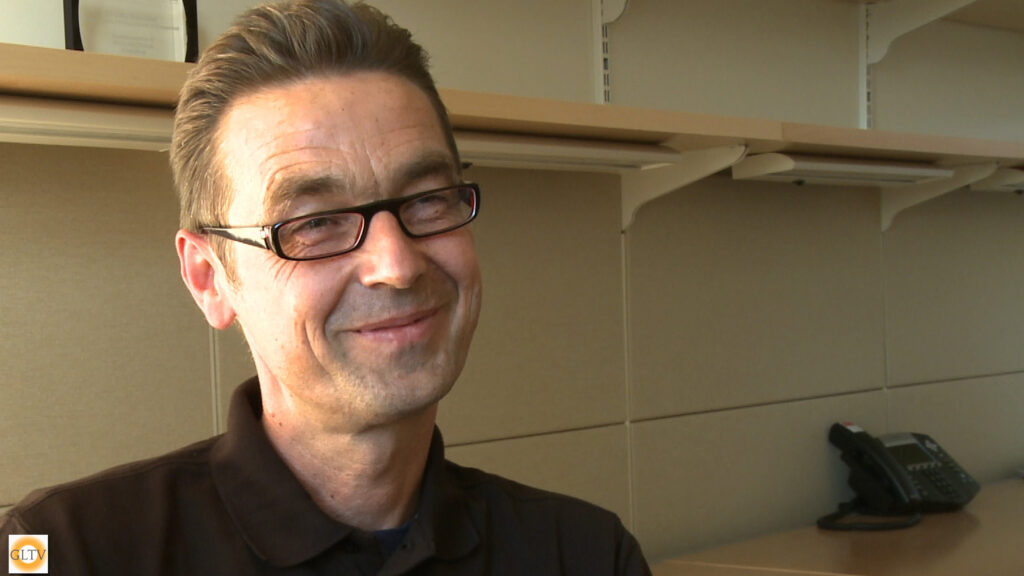
Otto Scharmer (Theory U and Leadership of change)
“IS THE DIGITAL REVOLUTION GOING TO CHANGE ENTREPRENEURIAL DNA?“
Over the past few decades our global society has become ever more unstable. There are more and more situations of disruptions, as well as global challenges (e.g., Climate Change) that humanity needs to face as a whole. Recognizing such uncertainty is not enough. The process of learning must change. It cannot be about just memorizing things anymore. It must evolve towards deep learning, that is involving an open mind, an open heart and an open will… Leaders of the 21st century are no longer those at the top of a hierarchical structure; leaders (or better change makers) are those who are able collectively (in coordination with the whole system) to sense and shape the future, turning from ego-systemic awareness to also eco-systemic awareness. All these things are explained in the Theory U, which after 2 decades of experimentation, and the publication of several books on the topic, in 2015 evolved in an on-line community based on a MOOC (U-lab course) organized by the MIT and coordinated by the founder of Theory U, Prof. Otto Scharmer. So What is the Theory U? Who is it addressed to? What is a change maker? How can Theory U help solve impelling problems such as Climate Change and sustainability? And how can Theory U help people change themselves? Otto Scharmer answered to these and other questions.
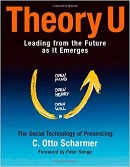

For further details –
http://book.ottoscharmer.com/
https://www.edx.org/course/ulab-leading-from-the-emerging-future-15-671-1x-1
INTERVIEW – (February 2019)
This interview was made and published in February 2019 on www.lteconomy.org
Subject: U-lab course and leadership for change
By Dario Ruggiero, Founder of Long Term Economy
Highlights
- The Theory U is not just a theory…It is a method and a movement! A method for making decisions in situations of disruption.
- Theory U builds collective leadership capacity. Leadership is the capacity of a system to “sense” and “shape” the future.
- …what we need today is a new concept of learning, a process that engages the whole person and the whole system: not only our head, but our head, heart and hand!
- A changemaker who uses the U process develops the capacity to sense and shape the future and in that way he/she is a Long Term Thinker.
- Universities should be re-invented, in a way we can better address those situations of disruption we live today. Today institutions of higher education tend to reflect a world of the past.
- Today we have a new “Silent Spring!” It is the unintentional impact of technologies on our minds.
- We have had over 120,000 registered users and they come prevalently from three main areas: North America, China and Europe… We are now trying to take the second step of our project: the u.lab-S: Societal Transformation…
- The U-lab is a “life-changing or eye-opening experience”… It helps you to move beyond downloading the patterns of the past. It opens up a new set of perspectives and possibilities.
“Theory U builds collective leadership capacity.
Leadership is the capacity of a system to “sense” and “shape” the future”
⇓
Question 1 | Theory U, its target and role in current times
The Theory U is not just a theory…It is a method and a movement! A method for making decisions in situations of disruption. And it’s a movement since people all over the place face situations of disruption as individuals, groups, communities and also as societies today. These challenges require us to not only change some outer but also some inner coordinates—they require us to shift the inner place from that we operate.
Let’s take a look at the image below. On the left side of the U 1) we go off the grip of the past. We open up to new possibilities and perspectives. Then 2) we access our deeper sources of knowing, connecting with who we really are. From that place we 3) sense and actualize emerging future possibilities. Theory U builds collective leadership capacity. Leadership is the capacity of a system to “sense” and “shape” the future.
Who is it addressed to?
To Students? PHDs? MBAs? Businessmen? Politicians? Well, I would say to all of them and more. To everyone who deals with situations of disruption. That basically is the human condition of this century.
Theory U in a nutshell
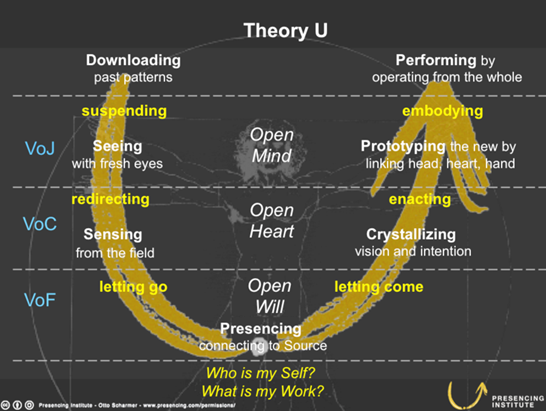
“… what we need today is a new concept of learning,
a process that engages the whole person and the whole system:
not only our head, but our head, heart and hand!”
⇓
Question 2 | Changemakers and deep learning
You often use the word “changemaker.” What is (and who can be) a “changemaker?” And what does “deep learning” mean?
First: “who can be a changemaker?” Everyone. Anyone who wants to develop the capacity to sense and shape the future. Actually, I sometimes use the world leader, other times changemaker, interchangeably. It depends on the context. However, I generally prefer “changemaker.” In fact most people have a wrong perception about leadership. They associate it with “hierarchy” and the people at the top of the hierarchical structure. That is no longer the way. Today leadership must evolve towards the capacity to co-sense and co-shape the future as it emerges. And that cannot be done just by one person at the top. It is a distributed activity and needs to involve many leaders/changemakers. To be leaders of the future we need “deep learning.”
What is deep learning?
I also call it “transformative” learning. If I ask you “What is learning?” Most people would probably refer to the old concept of learning (still predominant in our educational system); they would say: it is about memorizing figures, formulas and facts. But what we need today is a new concept of learning, a process that engages the whole person and the whole system: not only our head, but our head, heart and hand! Deep learning is not just memorizing things of the past; it is about:
- a) connecting with future emerging possibilities and;
- b) making them happen.
How to do that? The only way is by accessing the intelligence that resides in our heart and hands.
“Take the environmental problem.
Can we face it by treating it as a circumscribed problem?
No, we can’t. We can’t face it if first we do not change the mindset of consumerism”
⇓
Question 3 | The three divides
Take the environmental problem. Can we face it by treating it as a circumscribed problem? No, we can’t. We can’t face it if first we do not change the mindset of consumerism. The key point is to understand that these three divides are all part of the same problem which appears with three different faces. We must recognize the power of interdependence and interconnection.
“A changemaker who uses the U process
develops the capacity to sense and shape the
future and in that way he/she is a Long Term Thinker”
Question 4 | Changemakers and Long Term Thinkers
Let’s see… According to your definition, a Long Term Thinker is like a person who before dying has tried to leave a better world for his children. Well, that said, I would say Yes… Yes, a changemaker is also a Long Term Thinker. Let me explain. The U-lab process is like a journey. What’s important in your journey is not the end, but how much you open your mind, your heart, and your will. “Who is my Self?” “What’s my real purpose in life?” These are very important questions to answer. And the U-lab process helps us find that answer. It makes us more connected with the essentials inside and outside ourselves. It makes us timeless thinkers! A changemaker who uses the U process develops the capacity to sense and shape the future and in that way he/she is a Long Term Thinker.
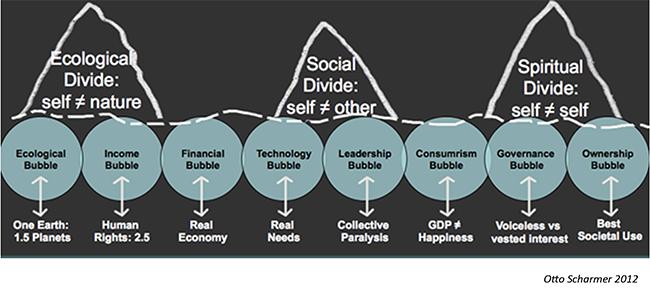
“The reality is that profound economic innovation
is often based on ecosystem awareness, i.e., the ability
to sense the needs and aspirations of the stakeholders you are dealing with”
⇓
Question 5 | Ego-systemic vs Eco-systemic actions
That’s a very good question. You talks about 50 years. I would say more… Over the past two centuries we have been taught (you know, classical and neoclassical economics) that people act according to their ego-system awareness. But is that true when you get out into the reality of the global economy today?
In part it is true, in part not. The reality is that profound economic innovation is often based on ecosystem awareness, i.e., the ability to sense the needs and the aspirations of the stakeholders you are dealing with. What we see today in the economic reality is both ego- and eco- system awareness. If we operate just in the ego-system awareness there are only limited things we are able to do. One of the key challenges today is how to re-think the key categories of our economic thought from the viewpoint of an evolving human consciousness.
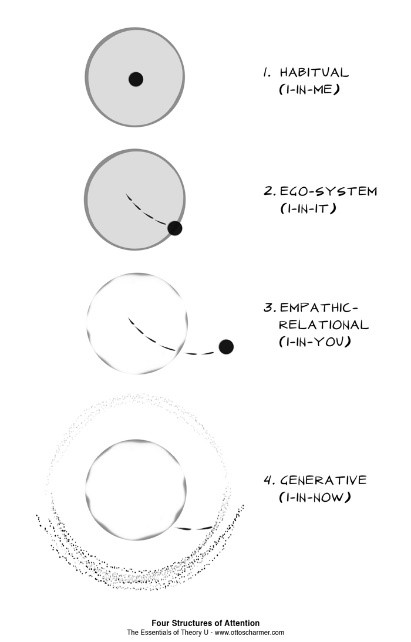
“Universities should be re-invented, in a way we
can better address those situations of disruption we live today.
Today institutions of higher education tend to reflect a world of the past”
⇓
Question 6 | The role of universities in the sustainability cahallenge
The role is very important as they are forming future minds. What we think today is the reality of tomorrow. Universities should be re-invented, in a way we can better address those situations of disruption we live today. Today institutions of higher education tend to reflect a world of the past.
There are three main forces that in my view transform the 21st century university as we speak:
- a) digitalization;
- b) action learning (shifting the outer place of learning from the classroom to learning in the real world);
- c) whole learning(shifting the inner place of learning from the head to the heart and from the heart to the hand).
These three forces, if combined in the right way, re-invent the educational system by putting the learners into the driver seat of real world change—and by supporting them with methods, tools, and helpful learning environments that draw from the entire eco-system that surrounds the learners and their schools.
The idea of the University has first moved from the unity of research and teaching, to the unity of research, teaching, and practice. Now it’s time to evolve that idea again to the unity of research, learning, and societal transformationt.
“Today we have a new silent spring!
It is the unintentional impact of technologies on our minds”
⇓
Question 7 | The AI challenge
Artificial Intelligence (AI) is troubling a lot of minds (from threatening jobs, to threatening the planet). Will U-lab help future leaders better face this issue? Do you have any opinion on what income (or better wellness) distribution will be based on?
Well. I think it’s not just about income distribution and universal basic income (UBI). That’s important, but there is an even more important issue related to technologies… You could call it the new “Silent Spring.” The Silent Spring is the name of a book by Rachel Carson published in 1962 and it talks about the unintentional impact of technology (specifically, pesticides) on nature. Today we have a new silent spring! It is the unintentional impact of technologies on our minds. Actually, we are just at the very early stage, but the effects in terms of anxiety disorders, depression, violence on young people are becoming more and more unbearable.
It’s interesting that many Silicon Valley executives are quite restrictive on the use of technologies by their own children while low-income children often have no restrictions. A new sort of “digital divide” is emerging. In the past, this expression used to highlight the fact that low-income children had limited or even no access to internet. Now its meaning has totally changed! It is a warning to the dangerous effects these technologies have on low-income children who have no restriction in the use of them, while high-income children have much more restrictions.
How can we address this problem?
Technology is not good nor bad itself! The effects of technology depends on the intention we have when we design, deploy and use it. Let’s take the CEO of a web-company (Facebook, Linkedin, Twitter, Instagram…). If his intention is to dominate the world economically, his objective would be maximizing the screen-time of its users and income from advertising, with no care about users wellbeing. On the other hand, should his intention focus on the well-being of his user eco-system, he will design technologies in a non-addictive way even though the reduced screen-time will reduce income from advertising. The effects of technology depends on how we use it.
⇓
Question 8 | The U-lab community
Let’s talk about some numbers. You launched the U-lab project in 2015. Since then, how many people have reached your community and where do they prevalently come from?
“The U-lab is a ‘life-changing or eye-opening experience…’
It helps you to move beyond downloading the patterns of the past.
It opens up a new set of perspectives and possibilities”
Question 9 | U-graduates benefits
What kind of benefit do people (especially the young) get from following U-Lab course, also in terms of employment or entrepreneurship?